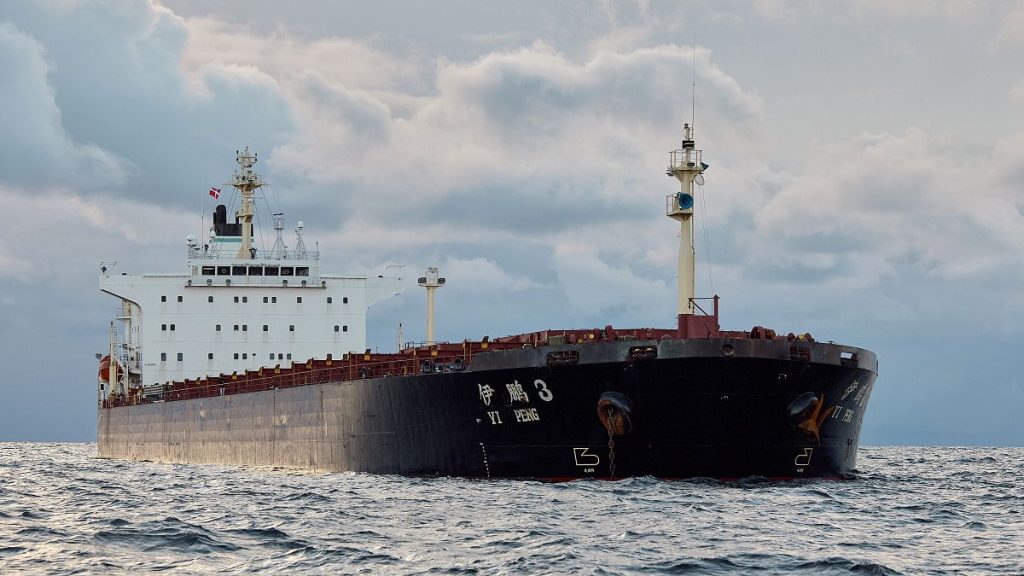The Yi Peng 3, a Chinese cargo ship, became the focal point of an international investigation after being linked to the severing of two crucial undersea data cables in the Baltic Sea in November. The incident, which disrupted communication links between several European countries, sparked immediate concern and prompted a diplomatic scramble involving Sweden, Denmark, Finland, Germany, and China. The ship remained anchored in the Kattegat Sea, an international waterway between Sweden and Denmark, for a month while diplomatic discussions regarding access for inspection unfolded between Stockholm and Beijing.
The investigation into the cable damage gained momentum when representatives from Germany, Finland, and Denmark, along with Swedish police and Chinese officials, finally boarded the Yi Peng 3 for a comprehensive inspection. The inspection, initially scheduled for earlier in the week, was delayed due to adverse weather conditions. Denmark’s Foreign Minister, Lars Løkke Rasmussen, expressed his anticipation that the ship would be allowed to continue its journey once the multinational inspection team completed its work. The incident underscored the anxieties surrounding maritime security and the vulnerability of critical infrastructure in the Baltic Sea region.
Suspicion fell on the Yi Peng 3 after it was observed in the vicinity of the damaged cables. The Wall Street Journal reported that investigators were pursuing the theory that the ship had intentionally severed the fiber-optic cables by dragging its anchor along the seabed. This theory, however, was seemingly contradicted by data from NORSAR, a Norwegian organization specializing in seismic monitoring, which reported no seismic activity in the area at the time of the incident, suggesting no explosions had occurred. While anchored awaiting inspection, the Yi Peng 3 was under constant surveillance by various vessels, including those belonging to the Danish navy.
The incident involving the Yi Peng 3 occurred against a backdrop of increasing concerns over the security of critical infrastructure in the Baltic Sea. Just a year earlier, the Nord Stream 1 and 2 pipelines, responsible for transporting gas from Russia to Germany, were damaged in a series of explosions. Furthermore, the following year saw significant damage to the Balticconnector gas pipeline, raising further alarms about the vulnerability of energy infrastructure in the region. These incidents, coupled with the severed data cables, heightened anxieties among Baltic Sea nations about potential sabotage and the broader security implications.
These escalating incidents prompted separate investigations by Finnish, Swedish, and German authorities, with Germany’s defense minister suggesting sabotage as the likely cause of the damage to the fiber-optic cables. While China denied any responsibility for the incident involving the Yi Peng 3 and claimed to have no information about the ship’s activities, it expressed willingness to cooperate with relevant parties and maintain communication throughout the investigation. The incident highlighted the complex geopolitical dynamics in the region and the potential for such events to escalate tensions between nations.
The incident involving the Yi Peng 3 highlighted the vulnerability of undersea communication infrastructure and the potential for disruption to international connectivity. The lengthy diplomatic process required to gain access to the vessel underscored the challenges involved in international investigations and the importance of cooperation between nations in addressing such incidents. The broader context of previous incidents involving energy pipelines in the Baltic Sea further emphasized the need for enhanced security measures and vigilance in protecting critical infrastructure. The incident served as a stark reminder of the potential consequences of maritime incidents and their impact on international relations and regional stability.



